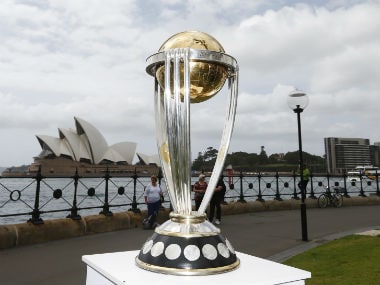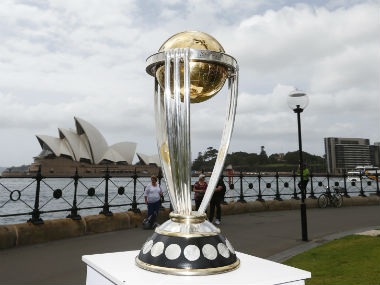It was a fine showcase, in as far as it was shown. The recently concluded World Cup Qualifier in Zimbabwe was a demonstration of all the ICC does so well in cricket below the top tier. Despite initial foreboding, Zimbabwe Cricket rose to the occasion. The tournament went off with barely a hitch, pitches may not all have been belters, but provided tense and varied cricket. Crowd control (with one notable exception) was solid, all the more remarkable given the size of the crowds, Zimbabweans flocking in their droves even to neutral games, the atmosphere at times electric. Though the final was played in the relaxed fashion typical of such tournaments, when the real business of the competition is already settled, the lackadaisical style in which Afghanistan completed their arithmetically improbable comeback triumph belied a tournament that has been little short of thrilling almost throughout, with upsets, blow-outs and nail-biters in equal measure. The cricket was memorable and the standard generally high, with enough comical exceptions (looking at you here, Dutchmen running between the wickets) to add some levity. Nepal’s young team provided the fairytale story and Scotland, denied at the last by rain and dubious umpiring, provided the tragedy . [caption id=“attachment_4409705” align=“alignleft” width=“380”]  Representative photo. Reuters[/caption] Bad luck and bad weather are part of cricket of course, indeed Scottish cricket sometimes seems to consist of little else. Jason Holder attempted to sympathise in his post match interview, “I remember we had this feeling last year in England. We made 300 and unfortunately lost the game on Duckworth-Lewis, so I can understand how they’re feeling.” He couldn’t of course. What Scotland had suffered was not remotely comparable to losing a meaningless bilateral ODI. What he had missed was the consequence of the loss, and the difference between misfortune and injustice. It’s hard to blame Holder — in the moment it was easy to forget what this tournament was for. At root, this tournament was about exclusion. It was about picking eight of the 10 teams and shutting them out of the World Cup. Had the qualification structure for the coming World Cup been the same as for the last, the West Indies, Zimbabwe, Ireland and Afghanistan would not have needed to qualify, their berths secure by dint of their Full Membership. The Netherlands and Scotland, as champions and runners-up in the World Cricket League Championship, would have earned their spots through their efforts over the past three years. Going on the final standings, the United Arab Emirates (UAE) and Nepal would have won through in a qualifying tournament which, if the recently concluded WCL Division 2 is anything to go by, would have been no less competitive and hard-fought. As it stands, there will be no Associates at the 2019 World Cup. This is hardly news of course. It has been known since at least 2013 that the coming World Cup in England would be restricted to 10 teams. The arguments against were aired at the time, and again, still more vocally, the last time the question broke into the news cycle during the 2015 World Cup. An almost unending list of prominent figures voiced their opposition, not only Associate captains and commentators, but ex-players and journalists from across the world. Gideon Haigh, Michael Atherton, Jonathan Agnew, Andy Bull, Ed Smith, Sachin Tendulkar and the late Martin Crowe — to name but a few — all made their disapproval known. So too the half-hearted excuses and justifications have been rehearsed and repeated, and each in turn picked apart. The the question of trimming the overlong or bloated format of 2015 does not survive a cursory glance at the calendar, which of course reveals that this edition is just one match shorter and will in fact last longer. The claim that “every match should be very competitive and having 10 teams at the 2019 World Cup will make sure that will be the case” requires a little more work to debunk, but fairly straightforward arithmetic will nonetheless reveal that the 10-team format is in fact almost the worst possible in terms of producing dead rubbers. The argument for “competitive games” seems superficially sound enough, until one considers that the drawn-out group stage actually keeps the lowest-ranked teams in the tournament for longer. Though it is undeniable that matches between teams separated by more than six or seven places in the rankings sometimes (but hardly always) result in lopsided contests, the idea that the risk of such blow-outs is confined to matches between Full Members and Associates falls apart in the face of objective reality, where some of the most egregious examples were all-full member affairs (England vs New Zealand at the last World Cup springs to mind). In fact, if the Qualifier has shown us anything, it is that the gap between teams narrows appreciably as ones goes down the table. Even if we are to believe that the ICC is bowing to commercial realities only in order to reinvest in the future of the game, then why is that the portion of ICC revenue earmarked for Associate members has been slashed by some 75 percent in the last four years? Why has the six percent top-line allocation for development funding been abolished entirely? Citing the supposed development turn from the 50-over format to T20 is no more convincing. Why is the next World T20 still in effect only open to 12 teams? Why in fact is there no World T20 at all this year? Finally, the idea that the preservation of the World Cup as the “pinnacle” of the sport should be balanced against increasing opportunities outside of it; “Australia have been talking about tours involving Afghanistan” ICC CEO David Richardson said back in 2015 “I don’t think we’d have gone down this route if we weren’t confident that we’d make sure that Ireland and Afghanistan both are playing in the region of eight to 10 ODIs per year.” Why is it then that of the three principal architects of the 2014 ICC “restructure” — England, India and Australia — only England have played any bilateral matches at all against Associate opposition since the last World Cup, and then only against Scotland and Ireland in compensation for ECB control over UK broadcast rights? Richardson, of course, was promising something that was entirely beyond his power to deliver. The contraction of the World Cup is not intended to serve the interests of the wider game, nor even the interests of the ICC. It stems not from a desire to streamline the tournament, but to maximise the number of immediately bankable matches. It is not an attempt to ensure competitiveness, but a pursuit of predictability. It is not the fear of Associates losing one-sided matches, it is the fear of them winning. The chief commercial concern is not to raise money for the development of the game in the future, but to enrich those who hold the reins right now. What it boils down to at the last is the unarguable fact laid out by the man generally thought to be the father of the 10-team World Cup — then ECB chairman, now “president”, Giles Clarke. “The ICC is not a democracy and its purpose is not proselytising cricket across the globe.” This is the only unambiguous statement that any ECB representative has ever made on the subject. The English board have stubbornly refused to offer any further defense of their tournament, leaving it to ICC spokespersons such as Richardson to try to defend their decisions. Yet it reveals more than all the rest of the tired debate could hope to. There are no justifications, only this Melian declaration. Platitudes, non sequiturs and empty promises are all that is left to the ICC when the Boards’ “leadership group” has taken the decision out of their hands. The secretariat in Dubai no more determines the format of the World Cup than it chooses where it will be held or what is done with the money afterwards. “The ICC is not a democracy and its purpose is not proselytising cricket across the globe.” If you are looking for an explanation for what looks like an act of myopic short-termism and egregious self-sabotage, there is your answer. Cricket does not have a governing body, and never has. The final “C” in ICC now officially stands for “council” rather than “conference”, but in reality the ICC remains, in institution-theoretic terms, and intergovernmental (or rather inter-board) forum rather than a truly supranational organisation, and is still largely bereft of real agency. At its core, the ICC is little more than a members club, with the office in Dubai primarily responsible for monetising global events and disbursing the proceeds to its (full) members. Though the ICC has taken on some of the aspects of an international sports federation since its move to Dubai in 2005, with permanent offices and full-time staff, it remains an organisational pygmy compared to rival sports bodies, and indeed even to some of its own member boards. The ECB, for example, employs almost 300 people, the ICC fewer than 100. In short, it lacks not only the authority but also the sheer institutional capacity to challenge, much less govern its members. Lacking the sort of effective control which, say FIFA exercises over its member-federations, the ICC can act only in the margins, primarily in areas where the full members are happy to allow it to — anti-corruption, doping (to an extent), in organising qualification structures for world events, preferably as cheaply as possible, and to attempt to replicate the development work of a genuine global sports federation on a shoestring budget. These tasks the ICC performs, generally very well. In the latter case, what the ICC has achieved with ever dwindling resources is nothing short of astonishing.
Yet when it comes to consequential decisions regarding schedules, tournament structures and revenue disbursement, the real decision-makers are not to be found Dubai except when they fly in for conferences. The year-round staff at the ICC can only hope to steer proceedings by careful control of agendas, and seeking to foster consensus around something other than zero-sum outcomes. The final say remains with the Executive Board, still made up primarily of Full Member representatives. In any other context one might speak of conflict of interest, but in truth there is barely any conflict. By and large, Full Member representatives serve the interests of their home boards to the exclusion of all else.
These immediate interests leave little space for long-term strategising or growing the pie, much less for generosity or inclusiveness. It is something of an open secret that the majority of ICC staff privately oppose the shrinking of the World Cup, and indeed that most full members are ambivalent at best. The underlying problems of short-termism and lack of vision of which the contracting World Cup is only the most prominent symptom do not stem from some supposed indolence or indifference on the part of the ICC, nor even some moral failing on the part the Board. They are systemic and structural, deriving from the persistence with a Victorian model of governance that is manifestly incompatible with the successful pursuit of the ICC’s stated commitment to a “bigger, better, global game.” The end result will be clear enough come 2019. The opening ceremony will likely cost more than the annual budgets of the top five Associates combined, and will signal the start of a six-week slog through 45 matches between the same teams that play each other the rest of the time anyway. In all likelihood, it will still dominate the back pages, at least in those countries where cricket news is ever to be found there. In the rest of the world, cricket’s “showcase” event will pass unnoticed… …insular, smaller, and worse.


)

)
)
)
)
)
)
)
)



